CARE
High-quality caregiving is essential for families, individuals, and society. We design policies that recognize and fairly compensate caregiving labor, including paid leave.
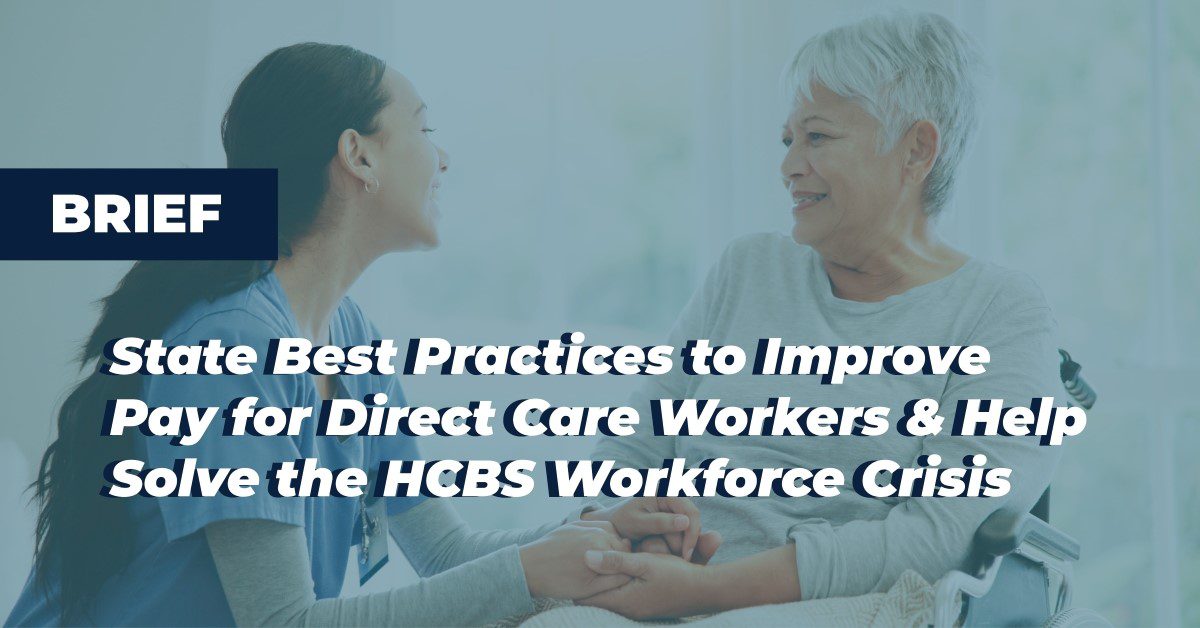
Medicaid-funded home- and community-based services make it possible for people with disabilities and older adults to live in their own homes and communities, where most people prefer to live. A long-standing direct care worker shortage, caused by low pay and poor working conditions and worsened by the COVID-19 pandemic, threatens access to direct care. State and local governments are innovating to respond to the care crisis. This brief highlights a selection of state best practices to improve wages for direct care workers in Medicaid-funded HCBS programs and help solve the workforce crisis. By raising wages, providing good benefits, and increasing job quality for direct care workers, who are disproportionately women and women of color, states can start to build a direct care system in which all consumers, workers, and families can thrive.
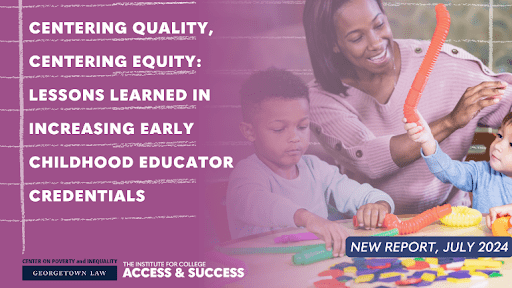
Thriving communities depend on a strong early childhood education system—one where both young children and members of the workforce are served and supported. Some states are changing credential requirements for ECE teachers, but many early childhood educators face significant barriers to economic security and continuing education—all while supporting children, parents, and their communities with specialized education services. Our new report with The Institute for College Access and Success examines the racial equity implications of policies that increase credential requirements for ECE jobs. Featuring case studies of California and Washington, D.C., the report offers policy ideas for protecting educators and advancing racial and economic equity, including flexibility and support for incumbent workers, wage increases, and low-cost options for obtaining new credentials.
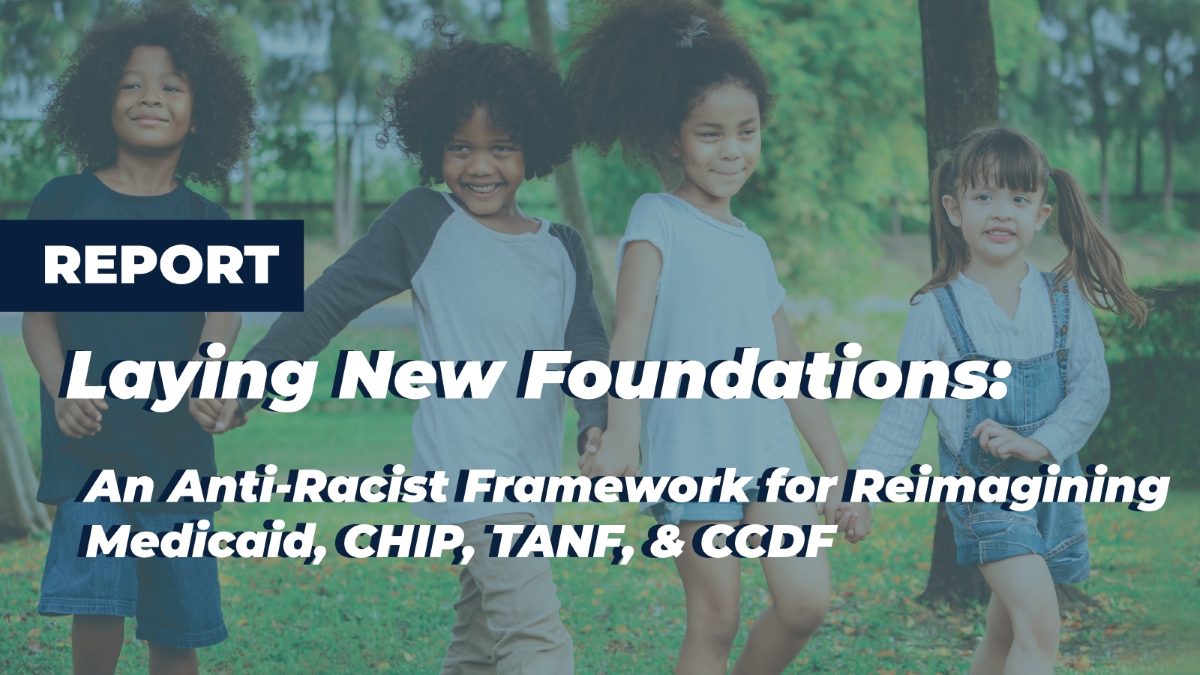
Everyone deserves the opportunity to lead a healthy, stable, and economically secure life. Many government programs aim to provide a stable foundation for all families, but fall short due to legacies of racism. This report puts forth a visionary framework with principles for anti-racist policymaking, focusing on Medicaid, the Children’s Health Insurance Program (CHIP), the Child Care and Development Fund (CCDF), and Temporary Assistance for Needy Families (TANF). It includes three spotlights from leaders in Puerto Rico, Texas, and the District of Columbia applying these principles to advance racial and economic justice in their communities.

Child care is an essential element of our social infrastructure that supports child development, family financial stability, and economic growth. But structural racism and sexism have led to the underinvestment and undervaluation of child care in the United States. This brief, published with the National Women’s Law Center (NWLC) offers a new, anti-racist vision for transforming the Child Care and Development Fund (CCDF) into a program that actively pushes back against structural racism and advances racial equity and economic prosperity for all families. It proposes recommendations for advancing a more equitable child care system.
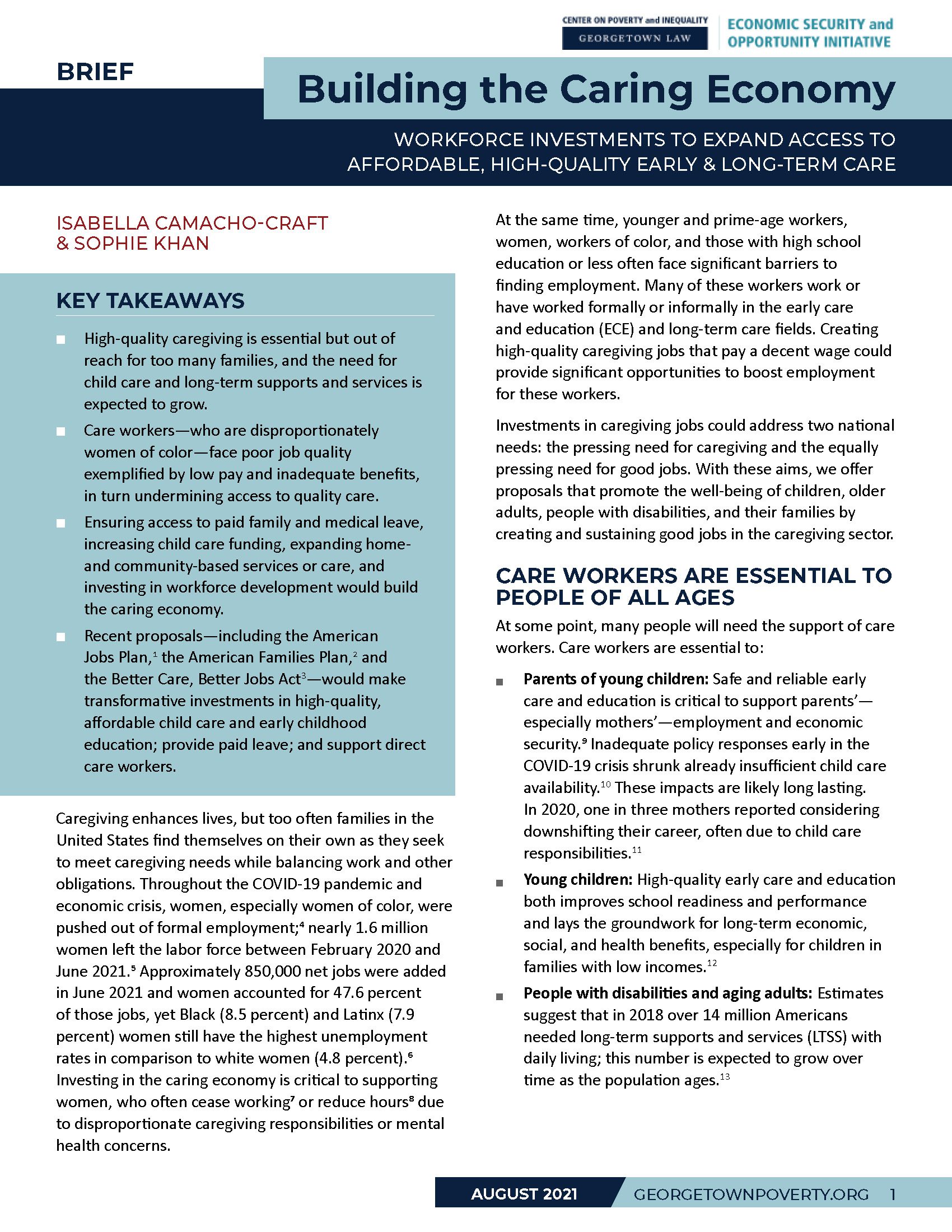
High-quality caregiving, including child care and long-term services and supports, is essential but out of reach for too many families. At the same time, care workers—who are disproportionately women of color—face poor job quality, low pay, and inadequate benefits, which undermines access to quality care. This brief offers recommendations for caregiving investments that promote the well-being of children, older adults, people with disabilities, and their families by creating and sustaining good jobs in the caregiving sector.

The COVID-19 pandemic and recession have greatly magnified existing health and economic inequities, threatening the well-being of children and families. Children, families, and communities throughout the United States urgently need bold, equitable, and anti-racist human services to meet the extraordinary challenges facing our country. This brief summarizes the key recommendations from a GCPI research project identifying, developing, and prioritizing human services-focused federal executive actions to improve economic security and well-being for children and families in the U.S.
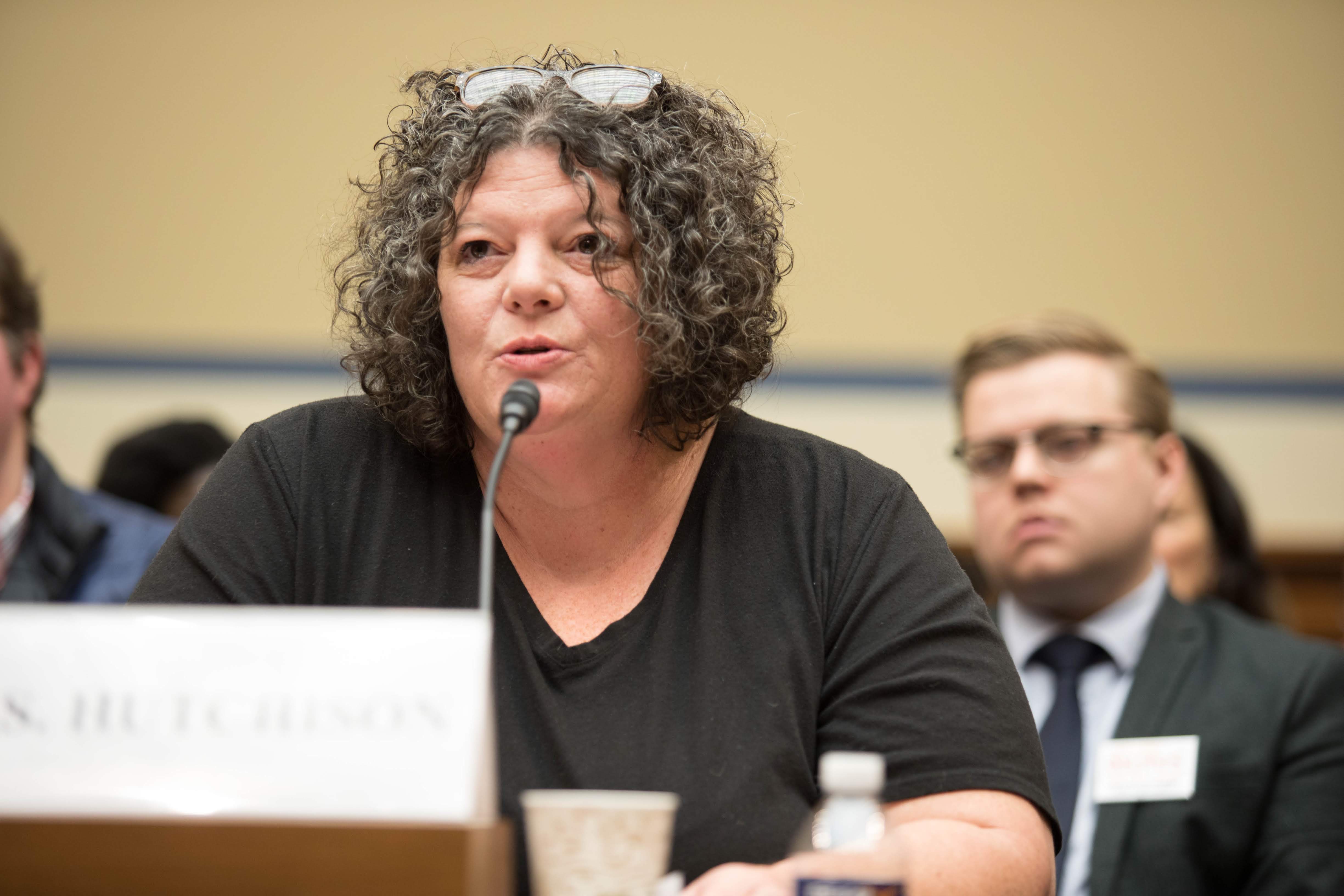
West Virginia families are struggling. One in seven adults in the state struggle with hunger. One in five households with children in the state reported that the kids weren’t eating enough because the family struggled to afford food.

The COVID-19 crisis has highlighted the growing need for child care, paid leave, and unemployment assistance, but many state and federal unemployment assistance and paid leave programs fail to account for the child care needs of working families. This project chronicles and analyzes state-by-state policies on the availability of wage replacements for workers without child care. The table lists policies on the availability of unemployment assistance and paid leave by state, including D.C. and territories, including definitions of school “closures” for regular and pandemic unemployment assistance eligibility, work search requirements, and working documentation of state paid leave programs.

Before the COVID-19 crisis, home visiting programs provided essential services to help support pregnant people and parents of young children, strengthen parent-child interactions, promote healthy child development, and facilitate stable family systems. During the COVID-19 pandemic and resulting recession, many families face new and increased needs that home visitors can work to address. This brief, published jointly with the Rapid Response Virtual Home Visiting collaborative provides an overview of home visiting programs, shares their successes in pivoting to virtual service models, and explains their need for increased federal funding.

As we near the end of July, it is clear our overlapping health and economic crises show no sign of abating—in fact, they are on the verge of becoming much worse. Congress and the president now face crucial and urgent choices in averting a depression and creating a recovery that addresses the pain that has been disproportionately exacted on women.
